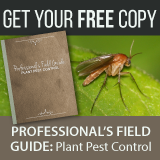

Pages: 1
| Posted: 10 Jan 2011 20:28 | |
|
Registered User Currently Offline Join Date: Nov 2010 |
Posts: 6 Reputation: 1 User Rank: 1 - Seedling 
|
| Fungus gnats and spider mites are the bain of my existence for two accounts. I am looking at trying something green this year. ANy ideas? | |
| Posted: 11 Jan 2011 16:33 | |
|
Registered User Currently Offline Join Date: Jan 2011 |
Posts: 1 Reputation: Unranked User Rank: 1 - Seedling 
|
| I have had best results with biological gnat treatments similar to bacillus thuringensis. Gardens Alive has granules instead of liquid (which I am used to using). Has anyone tried these granules? Are there other suppliers offering the liquid gnat control? | |
| Posted: 11 Jan 2011 16:37 | |
|
Registered User Currently Offline Join Date: Jan 2011 |
Posts: 798 Reputation: 43 User Rank: 10 - Blossom 
|
|
Try using LIVE nematodes for fungus gnats. For mites, you can try predatory mites if the pest mite population isn't too heavy. Otherwise, spray with horticultural oil to knock them down, then introduce live predator mites later on to stay ahead of them.
Clem |
|
| Posted: 11 Jan 2011 16:41 | |
|
Registered User Currently Offline Join Date: Jan 2011 |
Posts: 2 Reputation: 1 User Rank: 1 - Seedling 
|
|
We use Sticky Boards and have for years. Tear the board into 1X3" Strips install on soil and in collection saucer. Wait a week and you will see them disappear. The main trick is to do them all. This is a complete eradication of them.
Plantdoc |
|
| Posted: 11 Jan 2011 18:27 | |
|
Registered User Currently Offline Join Date: Jan 2011 |
Posts: 1 Reputation: 2 User Rank: 1 - Seedling 
|
|
I have had the best results using live neamtodes as well for fungus gnats. Bio Works produces the best product. I am usure who you could use as a distributor in your area.
Good Luck |
|
| Posted: 11 Jan 2011 18:28 | |
|
Registered User Currently Offline Join Date: Jan 2011 |
Posts: 10 Reputation: 1 User Rank: 1 - Seedling 
|
| We used "scanmask, these are the live nematodes, from BioLogic Company (www.biologicco.com) for a large interior garden at a school this summer and had great results. These planters were alive with fungus gnats. We used the sprayable formulation. We monitor with sticky cards to check populations. The only problem we have is the office where people are constantly bringing in their personal plants. We are trying to get them to eliminate them but? We just treated all their plants with the solid formulation and haven't heard anything so hopefully that worked. | |
| Posted: 11 Jan 2011 21:13 | |
|
Registered User Currently Offline Join Date: Jan 2011 |
Posts: 40 Reputation: 2 User Rank: 1 - Seedling 
|
|
I take a different approach. If things are really out of control;
remove top dressing. Let plants dry down a little more than normal. Water plants with a slightly soapy water. I use Dr. Bronner's peppermint soap with lots of success! Most dish soaps work pretty well too. spider mites....same soap/add drops to spray bottle/water. I usually don't have mite issues. I do prevention spraying, not usually needing treatment spraying. Unless someone at an account has brought in some plant on their own. 
|
|
| Posted: 12 Jan 2011 00:30 Last Edited By: Clem | |
|
Registered User Currently Offline Join Date: Jan 2011 |
Posts: 798 Reputation: 43 User Rank: 10 - Blossom 
|
|
Some of you may hate me for this, but I have to caution you about applying ANY pesticidal substance (commercial product or "home remedy") without first determining whether you need to be licensed in your state to do so on a commercial account. In New Jersey and in most other states, you need to have both a licensed commercial applicator on staff to do the applications as well as having your business be licensed as a Commercial Pesticide Applicator Business in your chosen field (e.g., Category 3-C: Interior Plantscaping in NJ). There are also notification and application requirements, as well as recordkeeping, pesticide storage regulations, etc. that are involved in this process.
You can't just go to the supermarket, buy a bottle of horticultural oil and start spraying plants either at your facility or in your clients' premises. One exception is the use of substances listed on the federal FIFRA List of Exempt Substances: http://www.epa.gov/oppbppd1/biopesticides/reg ... The penalties for violations can be as much as $50,000 PER DAY or per event. Recently I was completing an online vendor registration form for a prospective client and had to go to the NJ DEP website to download our company abstract to attach to the form as supporting documentation of professional licensing...guess what I found out? Many of our competitors don't have a pesticide license for their businesses, but I know for a fact that they use pesticides on their accounts! Don't put yourself and your business in that pickle! Clem |
|
| Posted: 12 Jan 2011 15:25 | |
|
Registered User Currently Offline Join Date: Jan 2011 |
Posts: 5 Reputation: Unranked User Rank: 1 - Seedling 
|
| Hi I had posted this question yesterday on the other forum and was happy to get the answer here. I called Bio Works and they were wonderful!!! What great customer service! Thanks for the info peeps. | |
| Posted: 14 Jan 2011 23:40 | |
|
Registered User Currently Offline Join Date: Jan 2011 |
Posts: 16 Reputation: 1 User Rank: 1 - Seedling 
|
|
In my experience, fungus gnats are nearly always a result of not allowing soil to dry down properly. Remove as much soil from the surface as possible - even exposing top roots just a bit. Keep the plant at just above the wilt point. No need to add anything to the soil and no regulatory issues.
If a tech reports gnat problems, check on the tech's watering technique. You might save some plants from root rot as well as eliminating the gnat problem. |
|
| Posted: 14 Jan 2011 23:56 | |
|
Registered User Currently Offline Join Date: Jan 2011 |
Posts: 798 Reputation: 43 User Rank: 10 - Blossom 
|
|
Will,
Were it that easy! One other vector of fungus gnat infestation is PERSONAL PLANTS!!! The one thing over which we usually have little power or control on our accounts. Even if you're doing all of the above to create an inhospitable habitat for fungus gnats and their larvae, they can be continually re-introduced into the contract plants whenever someone in the office receives a gift plant from a florist or brings one in from home or the discount store or supermarket. And there is almost always some micro-habitat available to the adult reproductive gnats for breeding (e.g., that little bit of constantly damp potting medium that washes out of the drain holes and into the bottom of the decorative container). So it will be an ongoing battle against this pest in the commercial interiorscape, if not the all-out war it once was. Clem |
|
| Posted: 18 Jan 2011 05:57 | |
|
Registered User Currently Offline Join Date: Jan 2011 |
Posts: 40 Reputation: 2 User Rank: 1 - Seedling 
|
Well, you can engage the client into helping as well. I have more than once suggested to contacts to "please have everyone either take home their plants, or give them some soapy water and dry them down" leaving them partially responsible for the issue. Takes some of the burden off the tech, who, for the most part has done a great job. I've had accounts of my own, yes I still do service too (keeps you grounded and in touch!) have occasional flare ups of gnats. One time a bag of potting soil from an employee at the account held a large breeding population...even before opening. She said a "cloud" of them flew out at her when she opened it!  UGH. thankfully, her office was well away from many plants of mine I had to think of. Convinced her the best thing to do was to toss it immediately and work on the remaining population. She did, thankfully. UGH. thankfully, her office was well away from many plants of mine I had to think of. Convinced her the best thing to do was to toss it immediately and work on the remaining population. She did, thankfully.
Like many topics here, we all have ways of dealing with issues. No one answer is right or wrong. Just examples. |
|
| Posted: 17 Feb 2011 23:12 | |
|
Registered User Currently Offline Join Date: Jan 2011 |
Posts: 1 Reputation: Unranked User Rank: 1 - Seedling 
|
| Our method of gnat treatment is to apply a layer of Diatomaceous Earth to the top of the soil and put the plant on a water diet. Removing and replacing the top 2" of soil is also effective. Always use soil that is specified for indoor plants. | |
| Posted: 18 Feb 2011 01:20 | |
|
Registered User Currently Offline Join Date: Jan 2011 |
Posts: 798 Reputation: 43 User Rank: 10 - Blossom 
|
|
Mel,
D. E. can be effective...be sure it's horticultural D. E., not swimming pool filter D. E., which is highly pulverized and contains a much lower percentage of the sharp, lacerating crystals that the hort product has, which is what kills the emerging adult gnats when the pupae mature and try to leave the soil. However, if there is detritus (soil particles, dead plant matter, etc.) in the bottom of the decorative container, gnats will happily breed in that mess and the D. E. won't have any effect on them. The combination of D. E. and beneficial nematodes will do a fabulous job for you. Clem |
|
| Posted: 10 Nov 2014 21:42 | |
|
Registered User Currently Offline Join Date: Sep 2014 |
Posts: 53 Reputation: 1 User Rank: 2 - Sprout 
|
|
Here's a great blog post by The Buglady about dealing with Fungus Gnats.
http://www.newprocontainers.com/blog/identify ... |
|
| Posted: 12 Feb 2015 20:46 | |
|
Registered User Join Date: Aug 2012 |
Posts: 7 Reputation: Unranked User Rank: 1 - Seedling 
|
| I have recently acquired an account that includes an infestation of fungus gnats. The plants are planted in large Lechuzas so the soil is staying moist. So, this is one problem. But, it seems as if the gnats are coming out of the resevoir filling areas. Any ideas about how to kill the gnats in the resevoir? | |
| Posted: 14 Feb 2015 05:42 | |
|
Registered User Currently Offline Join Date: Jan 2011 |
Posts: 798 Reputation: 43 User Rank: 10 - Blossom 
|
| Drench with whatever pesticide or biocontrol you like. It will work on anything breeding down in the Lechuza pons layer between the soil and the reservoir, as well as the soil. It could be that soil has washed down through the pons layer into the reservoir itself, and during the intervals when the reservoir is empty of water and just damp, the gnats are flying down the fill tube and laying eggs in it. | |
Pages: 1
Interiorscape.com is sponsored by NewPro Containers ![]() RSS 2.0
RSS 2.0 ![]() Atom 1.0
Atom 1.0













